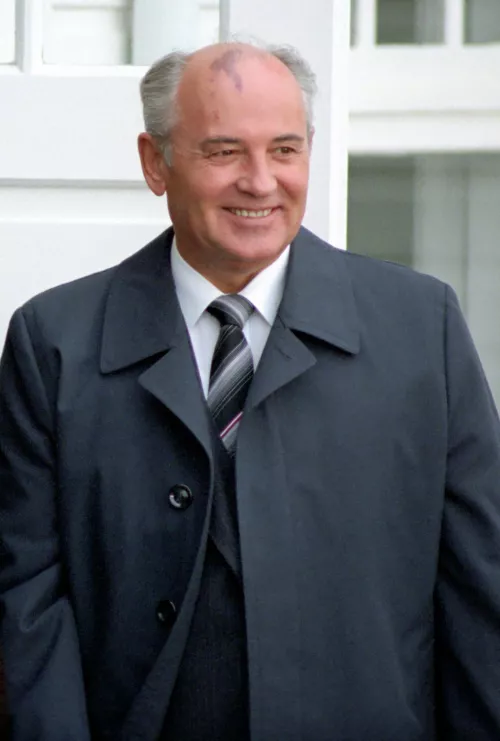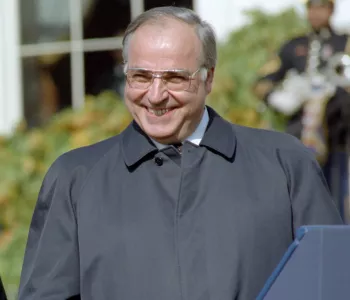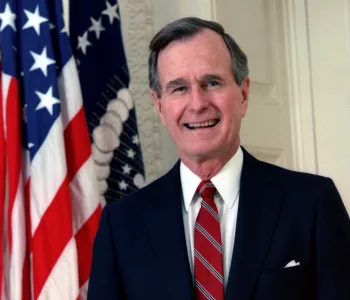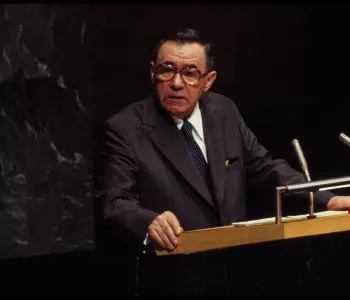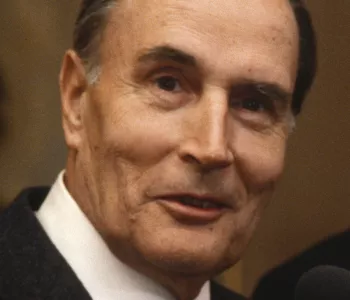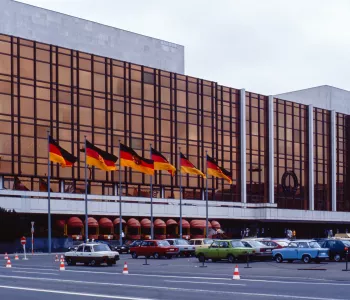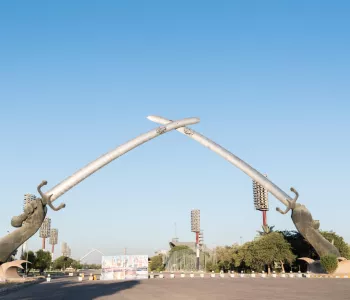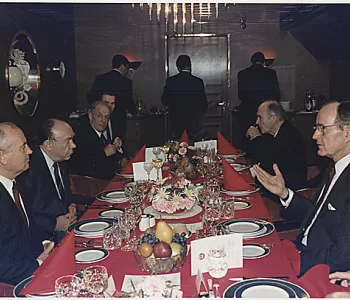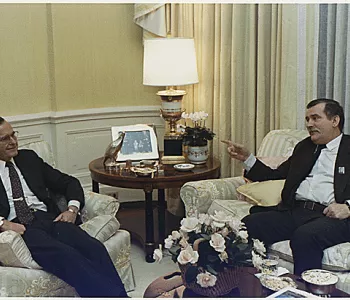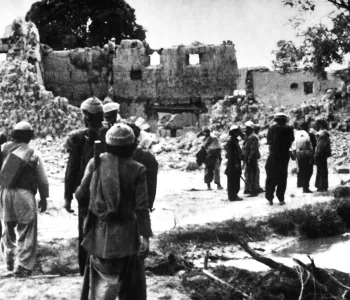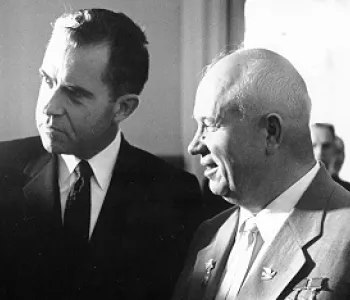The man partly credited with bringing an end to the Cold War was born into a peasant family on March 2, 1931, near Stavropol. As a boy, he did farm work along with his studies. He joined the Communist Party in 1952 and completed a law degree at Moscow University the following year. During the early 1960s Gorbachev became head of the agriculture department for the Stavropol region. By the end of the decade he had risen to the top of the Party hierarchy in the region. He came to the attention of Politburo members Mikhail Suslov and Yuri Andropov, who got him elected to the Central Committee in 1971 and arranged foreign trips for their rising star. In 1978 he was back in Moscow, and the next year he was chosen as a candidate member of the Politburo. His stewardship of Soviet agriculture was not a success. As he came to realize, the collective system was fundamentally flawed in more than one way.
A full Politburo member since 1980, Gorbachev became more influential in 1982 when his mentor, Andropov, succeeded Leonid Brezhnev. He built a reputation as an enemy of corruption and inefficiency. Gorbachev finally rose to the top party spot in March 1985 after Andropov's short term was followed by a brief leadership period of Konstantin Chernenko. Almost from the start, he strove for significant reforms, so that the system would work more efficiently and more democratically. Hence the two key phrases of the Gorbachev era: "glasnost" (openness) and "perestroika" (reform). Hoping to shift resources to the civilian sector of the Soviet economy, Gorbachev also began to argue in favor of an end to the arms race with the West.
Throughout his six years in office, Gorbachev always seemed to be moving too fast for the Party establishment, which saw its privileges threatened, yet too slow for radical reformers, who hoped to do away with the one-party state and the command economy. Desperately trying to stay in control of the reform process, he seemed to have underestimated the depth of the economic crisis. He also seemed to have had a blind spot for the power of the nationality issue: Glasnost created ever-louder calls for independence from the Baltics and other Soviet republics. His foreign policy efforts, however, proved relatively successful. While his arms control agreements with the United States could be considered as beneficial to Soviet interests as well, the peaceful breakaway of the countries of Eastern Europe, followed by German unification and NATO membership for the new Germany, appeared to old-line Communists more a sell-out.
In August 1991 hard-liners had had enough. While Gorbachev was on vacation on the Crimea, the hardline communist leaders launched a coup attempt. However, they failed because of incompetence, lack of support from the military and massive street protests in Moscow. After the coup, Gorbachev lost the political initiative. This now belonged to the leaders of the various Soviet republics, in particular the president of Russia, Boris Yeltsin. At the end of the year, Gorbachev was forced to resign as president of a Soviet Union no longer in existence. Since that time, he has been blamed by many Russians for their current political and economic predicament. In the West, he remains the 1990 Nobel Peace Prize winner who helped end the Cold War.
